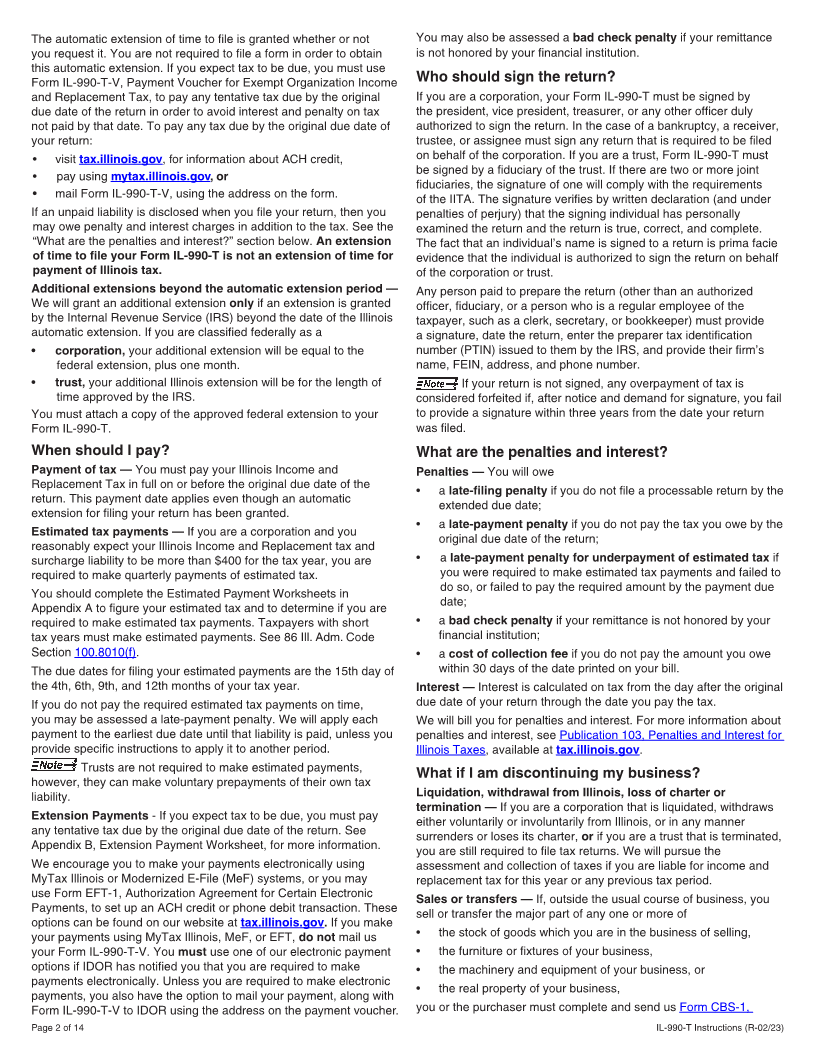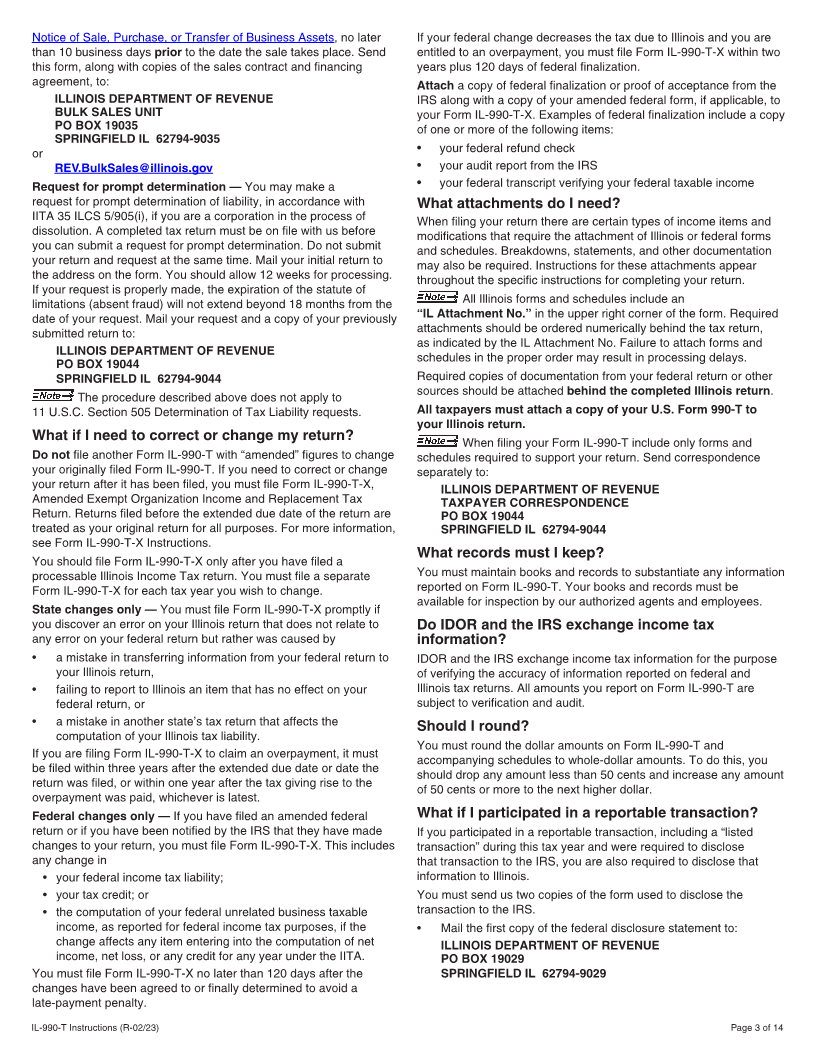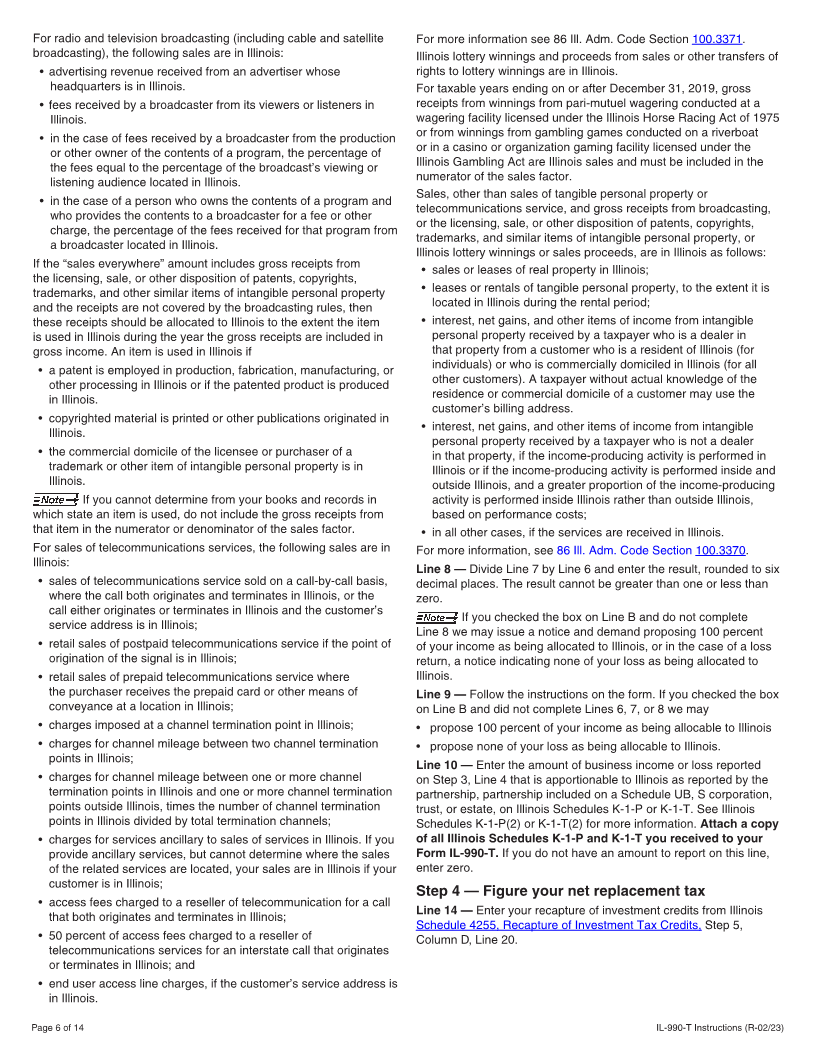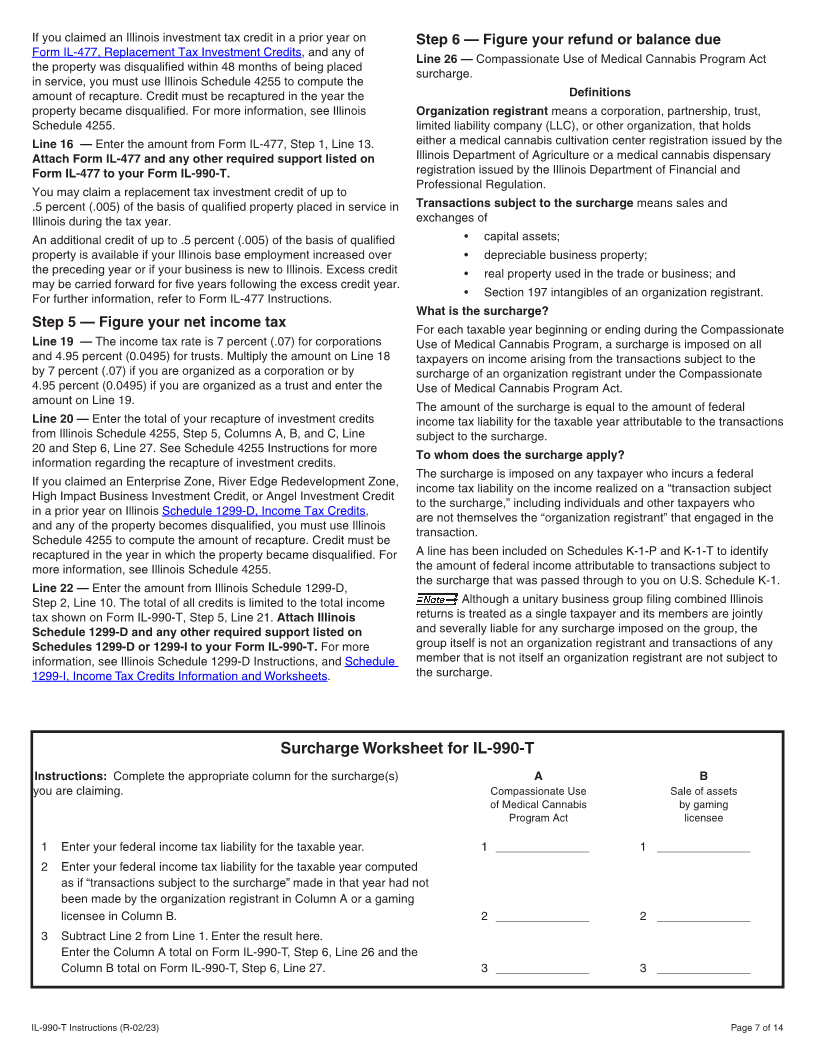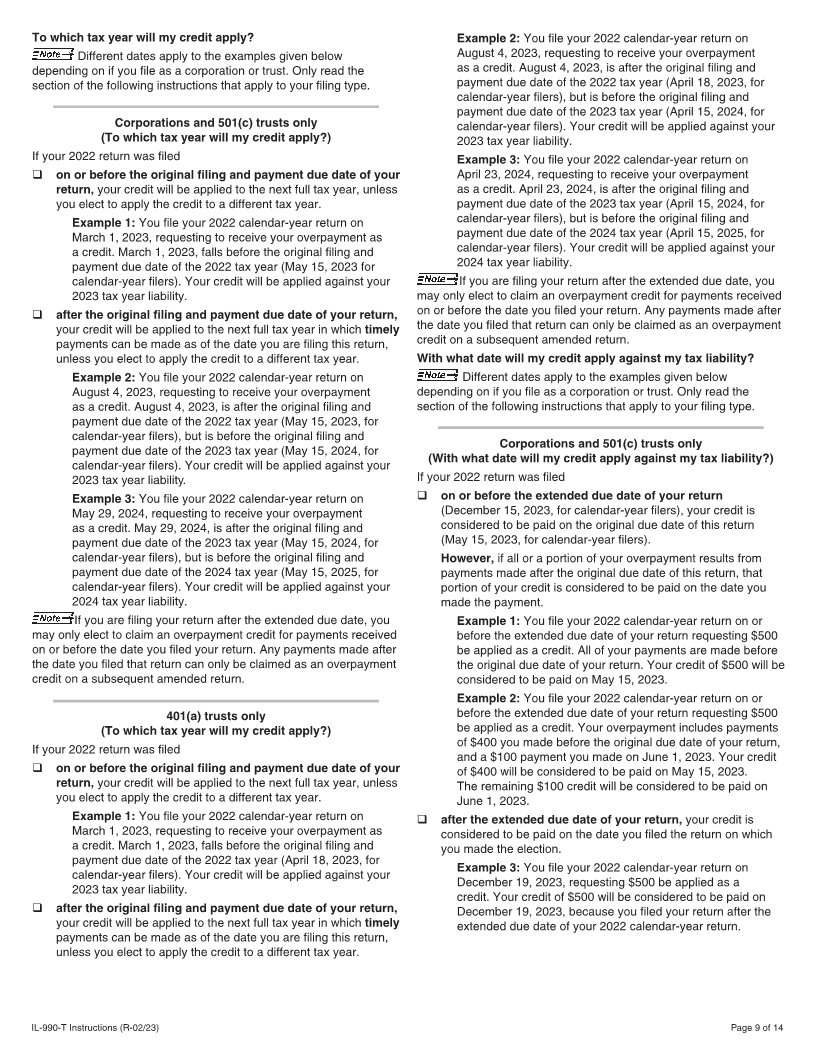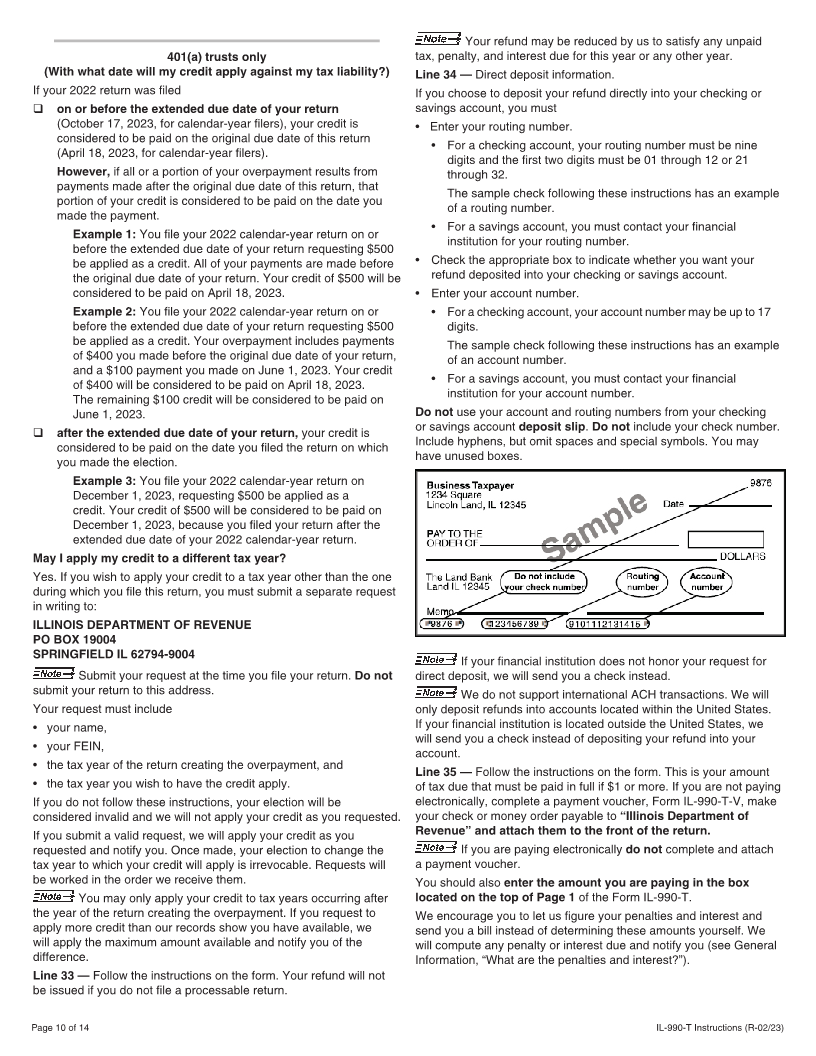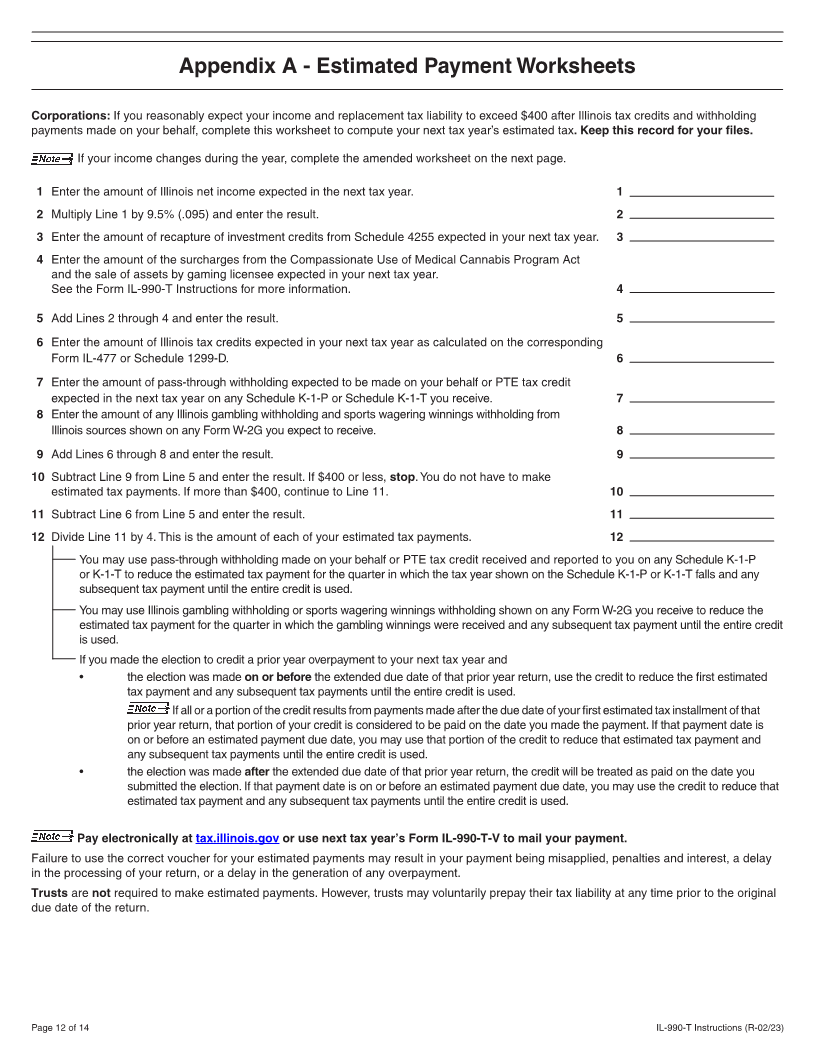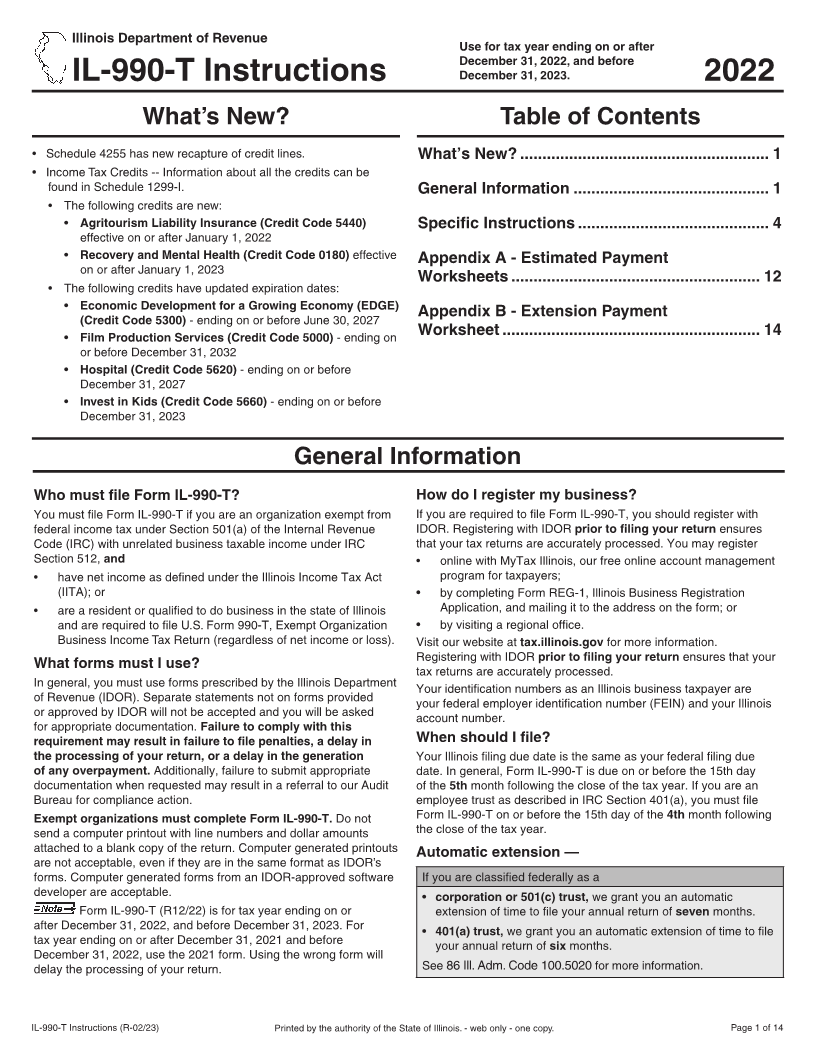
Enlarge image
Illinois Department of Revenue
Use for tax year ending on or after
December 31, 2022, and before
IL-990-T Instructions December 31, 2023. 2022
What’s New? Table of Contents
• Schedule 4255 has new recapture of credit lines. What’s New? ........................................................ 1
• Income Tax Credits -- Information about all the credits can be
found in Schedule 1299-I. General Information ............................................ 1
• The following credits are new:
• Agritourism Liability Insurance (Credit Code 5440) Specific Instructions ........................................... 4
effective on or after January 1, 2022
• Recovery and Mental Health (Credit Code 0180) effective Appendix A - Estimated Payment
on or after January 1, 2023
Worksheets ........................................................ 12
• The following credits have updated expiration dates:
• Economic Development for a Growing Economy (EDGE)
Appendix B - Extension Payment
(Credit Code 5300) - ending on or before June 30, 2027
• Film Production Services (Credit Code 5000) - ending on Worksheet .......................................................... 14
or before December 31, 2032
• Hospital (Credit Code 5620) - ending on or before
December 31, 2027
• Invest in Kids (Credit Code 5660) - ending on or before
December 31, 2023
General Information
Who must file Form IL-990-T? How do I register my business?
You must file Form IL-990-T if you are an organization exempt from If you are required to file Form IL-990-T, you should register with
federal income tax under Section 501(a) of the Internal Revenue IDOR. Registering with IDOR prior to filing your return ensures
Code (IRC) with unrelated business taxable income under IRC that your tax returns are accurately processed. You may register
Section 512, and • online with MyTax Illinois, our free online account management
• have net income as defined under the Illinois Income Tax Act program for taxpayers;
(IITA); or • by completing Form REG-1, Illinois Business Registration
• are a resident or qualified to do business in the state of Illinois Application, and mailing it to the address on the form; or
and are required to file U.S. Form 990-T, Exempt Organization • by visiting a regional office.
Business Income Tax Return (regardless of net income or loss). Visit our website at tax.illinois.gov for more information.
Registering with IDOR prior to filing your return ensures that your
What forms must I use?
tax returns are accurately processed.
In general, you must use forms prescribed by the Illinois Department Your identification numbers as an Illinois business taxpayer are
of Revenue (IDOR). Separate statements not on forms provided your federal employer identification number (FEIN) and your Illinois
or approved by IDOR will not be accepted and you will be asked account number.
for appropriate documentation. Failure to comply with this
requirement may result in failure to file penalties, a delay in When should I file?
the processing of your return, or a delay in the generation Your Illinois filing due date is the same as your federal filing due
of any overpayment. Additionally, failure to submit appropriate date. In general, Form IL-990-T is due on or before the 15th day
documentation when requested may result in a referral to our Audit of the 5th month following the close of the tax year. If you are an
Bureau for compliance action. employee trust as described in IRC Section 401(a), you must file
Exempt organizations must complete Form IL-990-T. Do not Form IL-990-T on or before the 15th day of the 4th month following
send a computer printout with line numbers and dollar amounts the close of the tax year.
attached to a blank copy of the return. Computer generated printouts Automatic extension —
are not acceptable, even if they are in the same format as IDOR’s
forms. Computer generated forms from an IDOR-approved software If you are classified federally as a
developer are acceptable. • corporation or 501(c) trust, we grant you an automatic
Form IL-990-T (R12/22) is for tax year ending on or extension of time to file your annual return of seven months.
after December 31, 2022, and before December 31, 2023. For • 401(a) trust, we grant you an automatic extension of time to file
tax year ending on or after December 31, 2021 and before your annual return of six months.
December 31, 2022, use the 2021 form. Using the wrong form will
delay the processing of your return. See 86 Ill. Adm. Code 100.5020 for more information.
IL-990-T Instructions (R-02/23) Printed by the authority of the State of Illinois. - web only - one copy. Page 1 of 14
